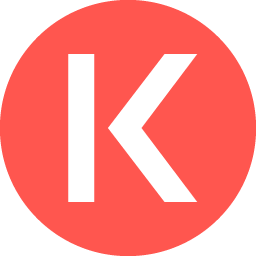







































Zcash Climbs Back 11%, Monero Holds Strong—Meanwhile, BlockDAG’s Beta Testnet Hits 110K Wallets
 XMR
XMR
 BDAG
BDAG
 WHEN
WHEN
 ZEC
ZEC
 XST
XST
Privacy is no longer a niche feature—it’s a core demand in blockchain design. Projects like Monero and Zcash have built their identities around this, offering users varying degrees of anonymity through advanced cryptography and zero-knowledge proofs. Both have drawn attention for their approaches, though they've also faced challenges in scaling, usability, and market stability.
BlockDAG, by contrast, is testing privacy-aligned features under real-world conditions through its Beta Testnet “Primordial.” With over 110,000 wallets being loaded into vesting contracts, it's validating smart contract performance and scalability in ways that position it for broader, long-term financial applications—where privacy must work at scale.
Monero: Upholding Privacy in Transactions
Monero (XMR) is a cryptocurrency that prioritizes user privacy and anonymity. By utilizing advanced cryptographic techniques such as Ring Signatures, Stealth Addresses, and Ring Confidential Transactions (RingCT), Monero ensures that transaction details—including sender, receiver, and amount—remain confidential and untraceable. Unlike many public blockchains where transactions are visible and traceable, Monero’s design makes it nearly impossible to link wallet addresses or follow token movement across the network.
Over the past year, Monero has demonstrated resilience in the cryptocurrency market. As of March 29, 2025, XMR is trading at approximately $180, marking a 20% increase from its price of $150 in March 2024. This performance, though modest compared to high-volatility meme coins, shows steady growth in a sector that often rewards short-term hype over long-term stability.
Zcash: Balancing Transparency and Privacy
Zcash (ZEC) offers users the flexibility to choose between transparent and shielded transactions. Specifically, by employing zero-knowledge proofs known as zk-SNARKs, Zcash enables users to transact with enhanced privacy when opting for shielded addresses. This dual model allows compliance with regulatory frameworks while still preserving individual privacy, a feature that sets it apart from fully opaque networks.
In the past year, Zcash has experienced notable price fluctuations. For instance, after reaching a cycle high of $79.91 on December 2, 2024, ZEC's value declined by 35%, hitting a low of $25 in February 2025. However, a significant rebound occurred on March 26, 2025, with the price climbing back to $36.26, representing an 11.46% increase in the last 24 hours. These swings, while volatile, are not uncommon for privacy-focused coins. Overall, they highlight the importance of Zcash's ongoing development efforts to enhance privacy features, maintain user flexibility, and broaden its adoption in privacy-conscious financial ecosystems.
BlockDAG to Load Over 110,000 Investor Wallets into Vesting Contracts
BlockDAG’s Beta Testnet isn’t just simulating network load—it’s executing one of the largest smart contract stress tests in the industry by onboarding over 110,000 investor wallets into vesting contracts. In doing so, this step is not only technical validation but a crucial check for scalability, especially for financial applications that require automated, secure, and consistent token distribution at scale.
To achieve this, the vesting logic is being tested with precision: each eligible wallet will receive 10,000 testnet coins, distributed in four scheduled unlocks—40% immediately, then 20% weekly for the following three weeks. All allocations are managed through BlockDAG’s Vesting Smart Contract, ensuring transparency and accuracy in how tokens are tracked, locked, and released. Furthermore, wallet holders can monitor locked and available balances through the integrated dApp, giving them full visibility into the process without manual intervention.
Importantly, this large-scale deployment isn’t just theoretical—it mirrors the token delivery process for the actual mainnet launch. By replicating the full vesting lifecycle now, BlockDAG is ensuring that contract logic can handle both high volume and sustained activity over time.
Moreover, the move also reflects the confidence of a growing investor base. BlockDAG has raised $209.5 million in its presale, now in batch 27 at a price of $0.0248 per BDAG. With over 19 billion coins sold and a 2,380% ROI since batch 1, the ecosystem is expanding—and this test proves it's technically ready to handle that growth.
Testing Privacy Where It Matters Most
Privacy technologies in crypto have matured, but the challenge now is proving they can perform at scale. Monero and Zcash remain respected names for users seeking anonymity, yet both face limitations—whether in adoption, flexibility, or system throughput. BlockDAG, while newer, is addressing these gaps head-on through its Beta Testnet.
By loading over 110,000 wallets into live vesting contracts, it’s not just testing privacy principles—it’s applying them within complex systems built for mass participation. In a space where technical claims are easy to make but harder to prove, BlockDAG is showing that privacy can be part of a scalable, operational framework.
Presale: https://purchase.blockdag.network
Website: https://blockdag.network
Telegram: https://t.me/blockDAGnetworkOfficial
Discord: https://discord.gg/Q7BxghMVyu
Disclaimer: This is a sponsored article and is for informational purposes only. It does not reflect the views of Crypto Daily, nor is it intended to be used as legal, tax, investment, or financial advice.

